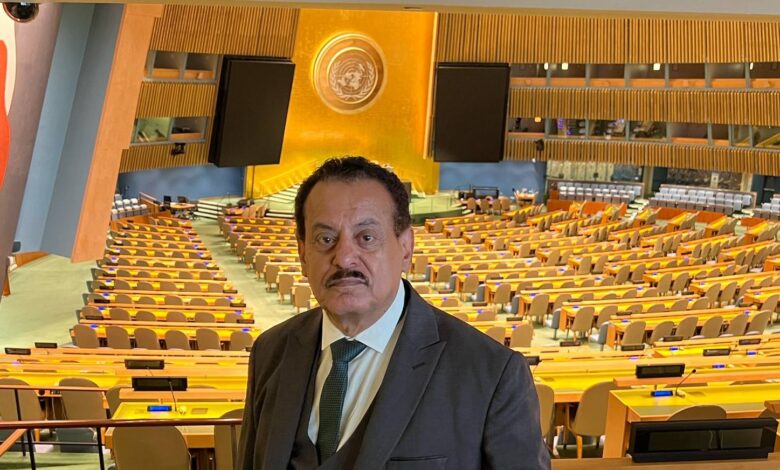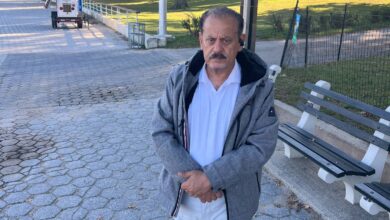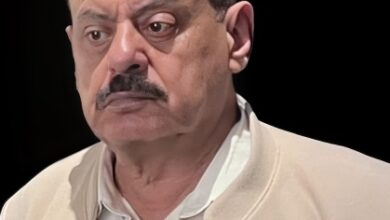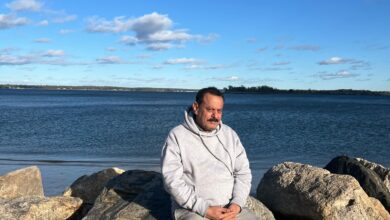A Five-Minute Marriage

Yemeni mp
Ahmed Saif Hashed
Time marches forward on its path and never turns back. It neither completes its course nor truly ends. It moves ceaselessly from the past into what lies ahead, without pause, without return, and without waiting. As for me, I paid no heed to the passing years of my life, imagining that I could seize the wheel, control the brakes, and change its direction, only to discover that my days were slipping away with alarming speed, my life running out swiftly, and whatever had passed would never remain nor return.
Am I unmarriageable? My disappointment began to spread across the page of my feelings like ink seeping and expanding. Shame began to strip me bare and expose my helplessness. My anxiety grew, stirring up the forgotten cautions and fears I had long mocked and buried deep within me throughout those wasted years of my life.
The years drifted by as summer clouds drift, clouds without rain and not even a single drop. I felt myself approaching the spinsterhood of men as I entered my twenty-eighth year, and I knew that what is lost from life never returns. I sensed that my long waiting and my dominant shyness would steal away what remained of my years.
One beautiful woman after another would slip away from me. I would refuse to accept anyone who came without surpassing her, and I would set out in search of someone even more beautiful, trying to overstep what had gone before. With every round of love my disappointment grew and hardened until I seemed to be gambling with fate itself, determined to defeat it. Such was the challenge, the race, and the failure. I do not know whether what I suffer is sickness or soundness, defiance or disorder, something ordinary and familiar or a psychological and behavioral imbalance in need of a doctor and a cure. Has beauty drifted too far, and has regret descended like destiny? I have lived my questions and my hell alone.
I had overreached in all my conditions. I appeared as though I demanded a miracle or wished to paralyze fate. I was seeking the very eye of the impossible, setting conditions I could not find on earth or in heaven, not even in the fresh imagination of the desert. Fortune amid misery lay somewhere between the impossible and the rare, and coincidences resembled the harshest impossibility, and if I found them, impossibility doubled. Which girl could I ever be sure would accept me, and how could she be content with my wretched lot?
I awoke to a reality both different and shocking. The years I had squandered would never return. I felt that in the end I would reap nothing but loss, and that the wasp would not leave me but surely accompany me to the very end at a cost I could not bear no matter what I did so long as what I sought had risen beyond the ceiling of the impossible.
I felt my life racing by, and what I was searching for appeared to me as a concentrated, compounded mixture of impossibility. I was burdened by my immense shyness, my public and secret complexes locked away in the corridors of my deepest depths, my inner contradictions, my conscience resisting my own pretenses, and the knots I hid and managed in far, dark corners where no sun or wind could reach. Added to this was my suffering within a society weighed down by its own backwardness and constrained by its heavy reality.
I felt an urgent need to liberate my consciousness from selfishness and stubbornness and from a reckless gamble that yields nothing but repeated loss and regret. I also felt that our reality itself demands that we free ourselves from the complexes and inherited burdens that prevent us from reconciling with ourselves and from choosing whom we love under sound and natural circumstances. How desperately we need to critique, dismantle, and expose the culture of shame that weighs so heavily upon us, forcing us into loss or into hypocrisy, deceit, and false appearances as we hide the ugliness of our faces behind counterfeit masks.
* * *
I said to myself that I must defeat my shyness first; this is the beginning of the path. I could no longer bear the waste of time slipping away in vain. I had to find the girl of my dreams soon, as quickly as possible. Life was being squandered, vanishing like the wind. I needed to hasten my steps before regret overtook me, before the train of life passed by never to return. I was already enduring immense pressures, compounded by the weight of the moment itself: a gnawing sense of misery, boredom, and a fear growing within me of the great regret drawing ever closer.
As I was leaving the house of my friend Nasr Abdul-Jalil in Tawahi, a beautiful young woman stepped out from the neighboring house, returning to her nearby home. She was radiant, glowing with light. I quickened my pace to walk beside her, then tilted my heavy head slightly in her direction, though my eyes remained fixed on the road ahead. I said to her:
“Will you marry me?”
I said it without prelude, determined to crush my shyness, to shorten the thousand-mile journey with a single step, to sever the thread of bachelorhood that, if prolonged, I feared would turn into new complexes or perhaps into a phobia that would never fade.
The girl turned toward me in startled confusion. She gave no reply but dashed swiftly to her house just a few steps away along the roadside.
She opened her balcony and looked down at me, her eyes wide with astonishment, her breath uneven, her chest rising and falling. It seemed she still could not grasp what had just happened, so strange was it. Strange enough, perhaps, to intrigue even a stone. And yet, for me, it was no jest; I was earnest, sincere, and in a hurry, down to my very last breath.
* * *
And again, in Al Tawahi, as I was heading toward Nashwan Park in its days of glory and renown, I saw a girl whose face was a kingdom of beauty and grace, enough to make me want to crush my immense shyness for her sake. She captivated me, and I resolved to confess my desire with speed and brevity, in a torrent of urgency ending in a proposal of marriage.
I hurried after her, having resolved to speak with her for just five minutes, ending at last with a marriage proposal. When I stopped her, saying, “Excuse me, excuse me,” panic overtook me. My tongue betrayed me. My courage betrayed me too. Instead of saying, “May I speak with you for five minutes?” I blurted out, “May I marry you for five minutes?”
She, instead of turning her face away and going on her way, turned toward me and studied my face, covered as it was with shame and defeat, then said, “I do not speak with madmen,” and walked off, leaving me behind to drag my disappointment like a condemned man on his way to execution.
A crushing despair seized me. I cursed the treachery of my tongue, the treachery of my courage, and my unlucky fate as well. Yet I filed the whole incident under what the Irish writer, dramatist, and critic Samuel Beckett called “failing better.” My previous experiences had wasted years of my life, ending only in failure and bitter harvest. This failure, at least, respected the value of time and did not waste it.
* * *






